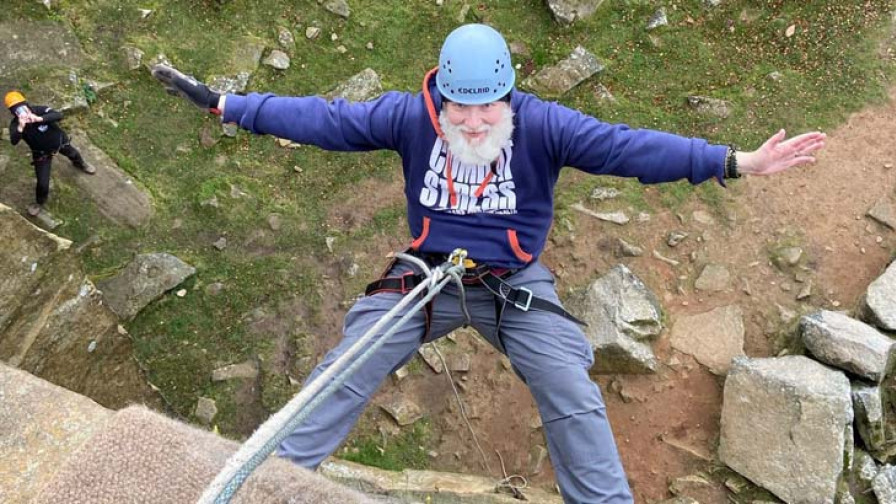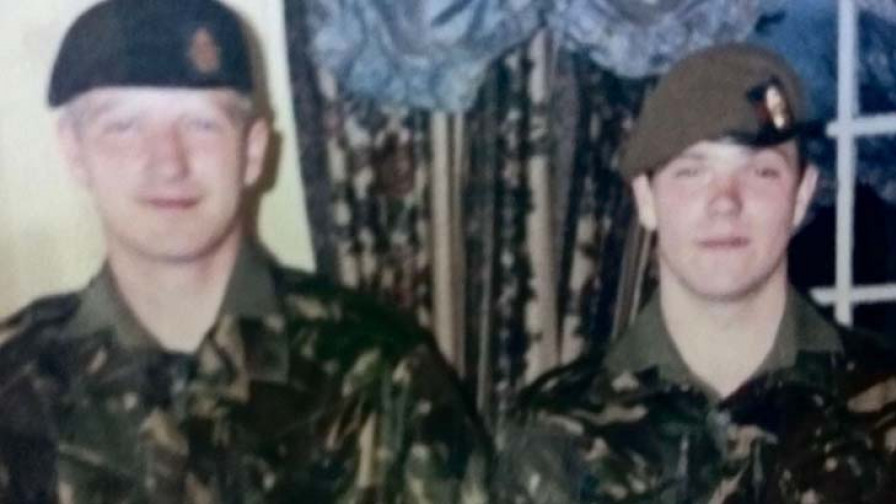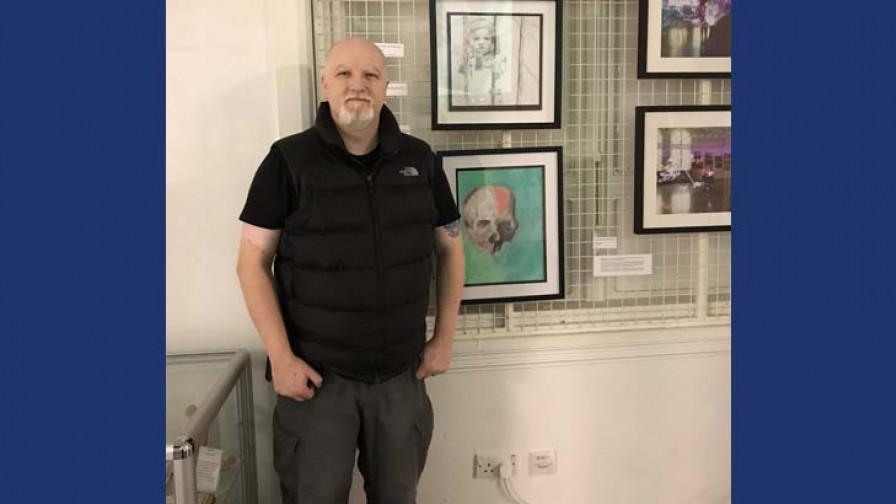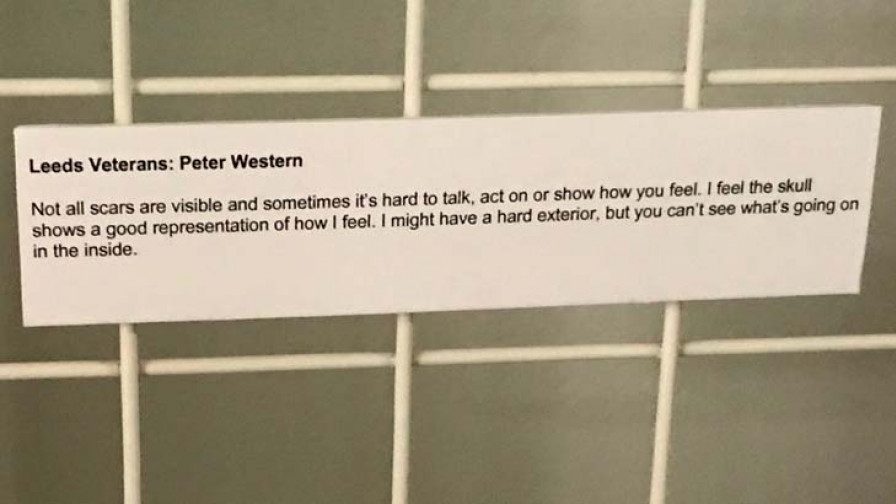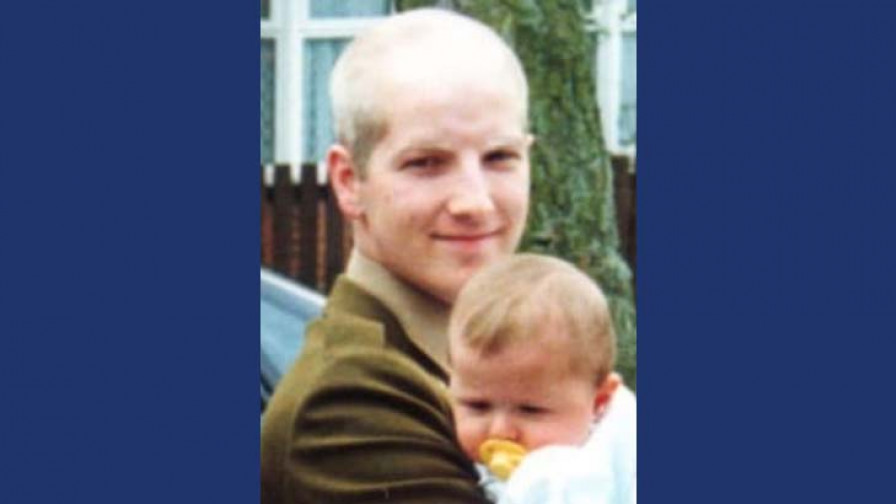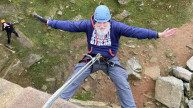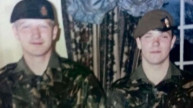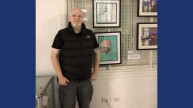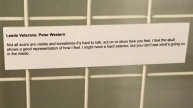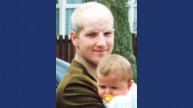Peter's Story
“I come from a large military family, with uncles and cousins who have served in all the services. I knew from a very young age I wanted to join up and did so when I was just 17 in 1995 serving in the Army with the RLC.
“My first posting was to Catterick which was so exciting, driving huge trucks and handling all the equipment. I wanted to go to Germany but had to go to Northern Ireland first. In the initial few weeks there I had to deal with a riot, suffering an injury which meant I was sent home. This was such a shock. It also meant I started to really struggle with crowds and would avoid them.
“Because of my injuries and finding it hard to recover, I moved to the Regimental Police handling security and ended up serving for just over 6 ½ years, leaving the Army in 2001.
“When I left the military, all my friends and family commented that I was different. I was getting into fights, drinking too much. I remember watching a film where one of the characters experienced PTSD and I realised all the symptoms were mine. I tried to get help from my GP – I was referred to a mental health specialist, but I didn’t feel he really understood me. He didn’t ask about my being a veteran – it just felt wrong. I left it and went off travelling, working abroad, and then came back, getting a job as a store detective.
“In 2017 I remember clearly coming downstairs one day and telling my wife that I felt empty, I started crying and couldn’t stop. My wife asked why, but I couldn’t explain.
“I made an appointment to see my doctor. He said I was having a severe mental breakdown and that if it hadn’t been for my wife and mother supporting me up to this point I would have been sectioned. This GP was great, he put me in contact with Combat Stress and I spoke to a nurse at the charity who immediately put me at ease.
“During my treatment, I had group therapy which I got a lot from, as well as one-to-one therapy and I used the Peer Support Service which was awesome, I can’t big them up enough. When you’re sitting with other veterans, there’s no judgement, we are all in this together, I still use the service today and I love it, it’s empowering.
“I think that if you go to the doctors or a hospital, they aren’t used to dealing with veterans, but at Combat Stress, it’s all they do. They look and assess you before treatment, they treat each veteran as an individual.
“If it wasn’t for Combat Stress, putting it bluntly, I don’t think I’d be here today, I really believe that. They put me on the right path. I took courses I never thought I would like yoga and painting which I now love and use to help me cope with my symptoms.
“To any veteran who has mental health issues, I’d say you’ve got to stop being a hard nut and pick up the phone to Combat Stress. I know it’s difficult to ask for help, but if you need it, you must. It’s that first point, picking up the phone, recognising something is wrong, that’s the hardest.
“If you’re a supporter of Combat Stress, I hope you see the difference you make and I’d ask you to find out more about what they do, as they’re great.
“Moving forwards, I’ve set up a group called ‘Wild Western’ for veterans where we go camping together. None of this would have been possible without Combat Stress.”

